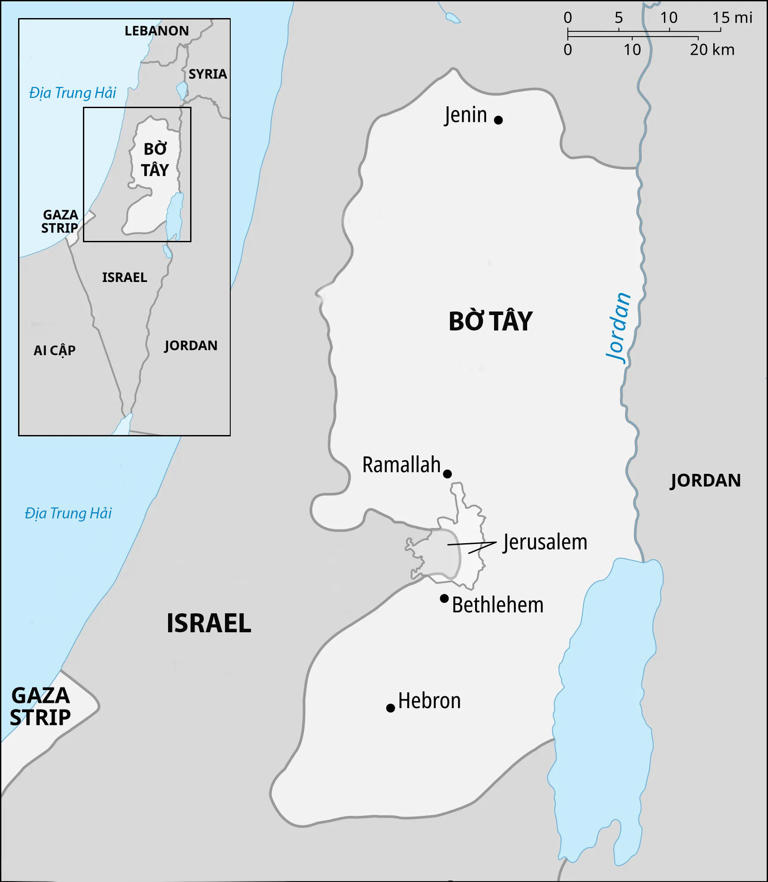The US could sanction many Israeli security units
U.S. officials are considering sanctioning Israeli police and military units accused of human rights abuses in the West Bank, according to unnamed sources.
The investigation into human rights abuses by a range of Israeli security forces, including the controversial Netza Yehuda battalion, has been underway by the U.S. State Department for more than a year, the Times of Israel reported on April 21, citing two unnamed U.S. officials
Washington plans to add to the sanctions list a number of other units of the Israel Defense Forces (IDF) and police, not least the Netza Yehuda battalion.
The U.S. State Department is expected to announce its decision to sanction a series of Israeli security units this week, tied to the content of the human rights report. This will be the first time the US government has imposed sanctions against the IDF.
A U.S. official described the unprecedented sanctions as Washington's way of taking its stance toward Tel Aviv, drawing the line between pledging to defend its allies and opposing Israel's escalation of tensions in the West Bank
The sources said the US leadership decided to punish after noticing that the IDF did not take action to discipline battalion member Netza Yehuda following the controversial incidents in the West Bank, or to build a mechanism to prevent recurrence of human rights violations. Axios reported that Minister Benny Gantz, a member of Israel's war cabinet, spoke by phone with U.S. Secretary of State Antony Blinken and asked Washington to reconsider the sanctions decision.
U.S. officials said part of the sanctions would prohibit Israel from using defense aid to procure weapons and equipment for the Netzah Yehuda battalion. However, the move is unlikely to have a practical impact, as Tel Aviv can continue to spend money on the unit without facing another response from Washington.
The Leahy Act prohibits defense aid from the United States to another country from being used for individuals or entities that "commit serious human rights violations without trial." Units on the sanctions list
Earlier, US and Israeli media, citing sources familiar with the matter, revealed that Washington was preparing to launch sanctions against the Netzah Yehuda battalion over human rights violations in the West Bank. Netzah Yehuda, meaning "Eternal Jew," is largely based on the conservative branch of Orthodox Judaism. The Kfir Brigade battalion is being deployed in the Gaza Strip
The Palestinian Authority and human rights groups denounced it as an extrajudicial execution of prisoners. The IDF had to move the battalion out of the West Bank after Omar Assad's death so that it would no longer have contact with the Palestinians, but no action was taken to discipline or punish the soldiers. The Israeli military defended the Netzah Yehuda battalion, describing it as a "model unit for the integration of conservative Jews in the army."
Israeli Prime Minister Benjamin Netanyahu said on April 21 that he would fight hard against any country that tried to impose sanctions on the IDF. "While the military is uniting to defend our country on the battlefield, we will unite to defend them on the political scene and we will win," he said.
The IDF has not received any notification of sanctions from the US, pledging to "investigate in accordance with the law with any irregularities". Defense Minister Yoav Gallant affirmed that the Netzah Yehuda battalion ensures professionalism and complies with IDF principles and international law. He opposed the U.S. sanctions plan, saying it would set a dangerous precedent and called on Washington to change its mind

































